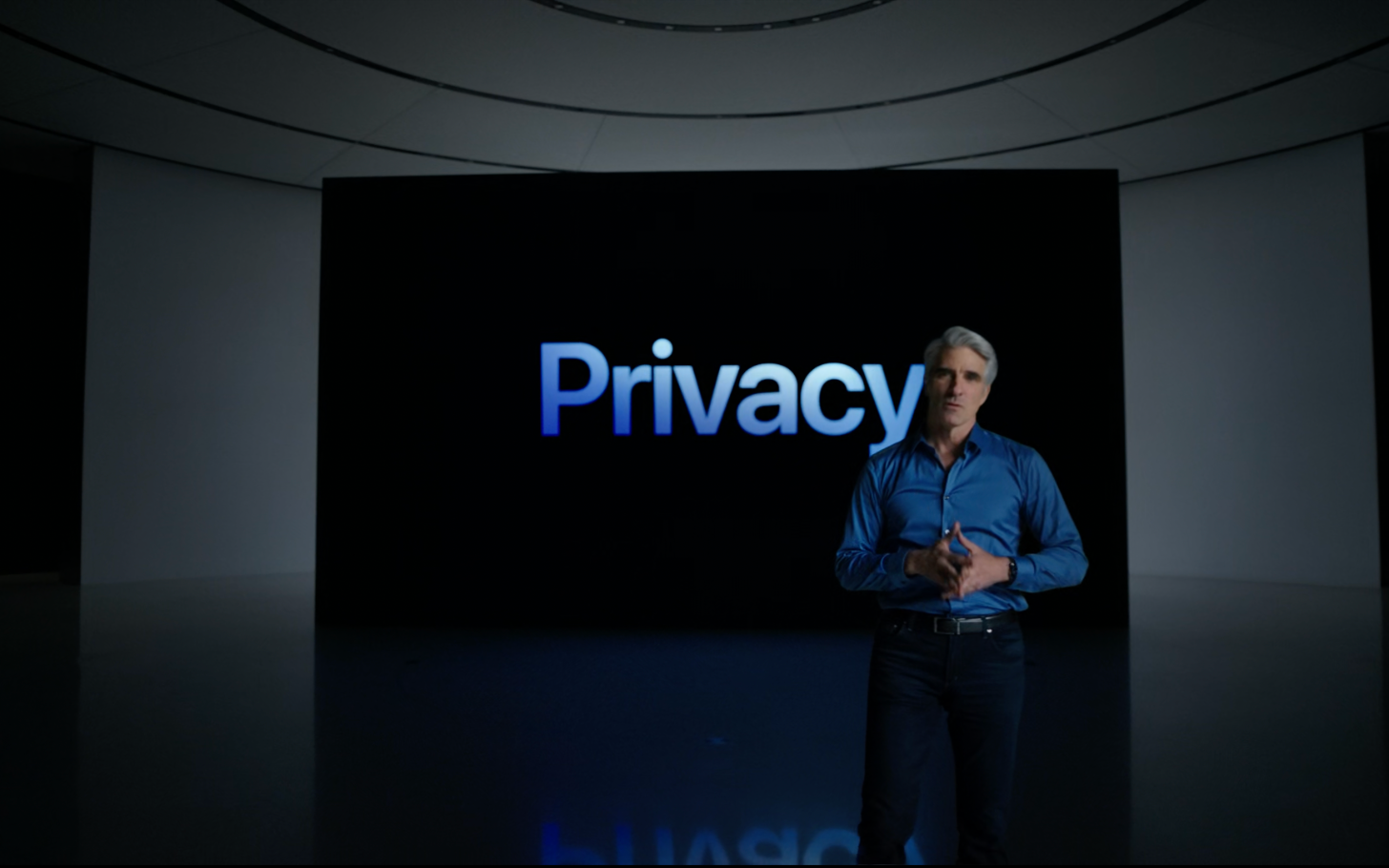Google was recently lauded for its efforts to make Android a more privacy-driven platform. These changes are obviously a welcomed sight, and we've been wondering how Apple would respond. No longer just a flashy phrase you’ll see on an Apple keynote slide, privacy has since become a cudgel to beat Google with every time it's found doing something sketchy. Here are just some of the ways Apple’s new privacy features steal Android’s lunch and eat it, too.
IP address masking
Just like with your home or work address, every device you use and your data connections have their own associated IP addresses that identify them across the web. To help shield these pieces of vital information from wandering eyes, Apple’s adding IP address masking to both the Mail app and Safari. Not only does this make it difficult for the websites you visit or the emails you open to track your location, but it makes it harder for them to follow your online activity, as well.
App privacy reports
The new app privacy reports that are coming to iOS 15 this fall will be a huge boon for users. This new page within the Settings app will allow you to see how apps treat your privacy, listing critical information like how they track your location or if they have access to your photos, camera, or microphone. It will also show you how often apps use the permissions you’ve approved, as well as a list of all the third-party groups your information has been shared with.
Siri’s going offline (finally!)
Nearly a decade after Siri launched on the iPhone 4S, Apple’s finally giving it the ability to work without an internet connection via on-device processing. Not only does this ensure that many of your queries aren’t transmitted to an Apple server for deciphering, but it also helps Siri carry out commands faster than before. Keep in mind, though, offline Siri support only works for system-level requests, like opening apps or adjusting settings. If you have a question that requires a web search, Siri will need to access the internet to complete it.
iCloud enhancements and iCloud+
As the backbone for all of Apple’s connected services, iCloud is getting some huge privacy improvements this year. For starters, you can set your trusted contacts as recovery contacts, allowing them to receive authentication codes to help you get back into your Apple account if you get locked out.
Then there’s Digital Legacy, a new feature that allows a close friend or family to take control of a loved one’s iCloud account once that person has passed away. This allows that person’s photos, passwords, and other important documents to be secured and preserved for a beneficiary.
Paid iCloud accounts are going to be converted into iCloud+ accounts at no extra charge. iCloud+ includes a VPN-like Safari service that utilizes two encrypted internet relays that mask your browsing activity from internet providers, websites, and even Apple itself. iCloud+ users can also set up an unlimited number of alias iCloud email addresses to be used for all of your junk mail needs. Finally, iCloud+ users can connect with an unlimited number of HomeKit-compatible security cameras around your home, which can save all the footage they record to your iCloud account for free.
Other notable privacy features found in iOS
These changes join an array of other privacy-focused features Apple’s added to iOS over time. For example, app privacy “nutrition labels” force app developers to disclose the personal information they track and how it’s used. Anti-cross-site tracking in Safari keeps advertisers from following you around the web as you browse. Apple also utilizes end-to-end encryption for its connected services, like iCloud, iMessage, and FaceTime.
More WWDC 2021 coverage
Want even more WWDC goodness? Check out our complete coverage of the event, including the latest software updates, feature announcements, and more.

